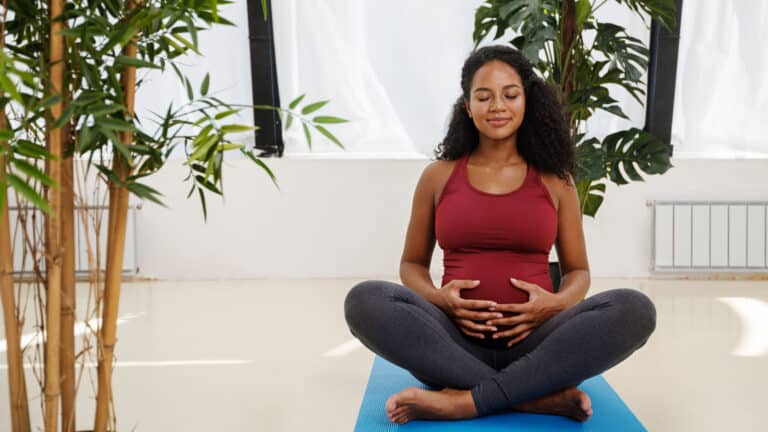10 common myths about women’s health that need to stop
Heard These Health Myths Before? It’s Time Women Stopped Believing Them
Women’s health has long been surrounded by myths, half-truths, and outdated beliefs that continue to affect how women view their bodies and how they receive medical care. Some of these misconceptions stem from cultural traditions, while others result from years of male-dominated research that overlooked female-specific issues. The problem is that these myths don’t just confuse women; they can delay proper care, encourage unhealthy behaviors, and leave many struggling with unnecessary guilt or fear.
Today, women have more access to medical information than ever before, yet misinformation still thrives. Whether it’s advice passed down from family, viral posts on social media, or assumptions made in doctors’ offices, these myths persist in shaping the way women think about their health. Dispelling them isn’t about winning arguments; it’s about giving women the tools to make informed decisions about their bodies and ensuring their well-being is taken seriously in every stage of life.
Myth: Fertility drops suddenly at 30
Many women grow up hearing that turning 30 is a “fertility cliff,” but the reality is more gradual. Fertility does decline with age, yet research shows the most significant drop typically occurs after 35. While age is important, lifestyle, health conditions, and genetics play a significant role in fertility outcomes.

Myth: Period pain is normal, no matter how severe
Mild discomfort during menstruation is common, but extreme pain that disrupts daily life is not something women should “just deal with.” Conditions like endometriosis or fibroids often go undiagnosed because women are told pain is normal. Yale School of Medicine reports it takes an average of 10 years for women with endometriosis to receive a proper diagnosis. Severe period pain should always be taken seriously and evaluated by a doctor.
Myth: Women don’t need as much exercise as men
There’s a misconception that women benefit less from physical activity or need “lighter” workouts. In reality, women’s bodies respond just as positively to strength training, cardio, and flexibility exercises as men’s do. Regular movement reduces the risk of osteoporosis, heart disease, and diabetes. According to the CDC, only 20% of American women meet the recommended guidelines for exercise, and part of that gap is due to cultural messaging that women should focus only on appearance, not health outcomes.
Myth: Heart disease is mostly a man’s issue
Heart disease is still seen as a “man’s illness,” but it remains the leading cause of death among women in the U.S. Go Red for Women notes that one in three women dies from cardiovascular disease each year. Symptoms often look different in women, with signs like fatigue, nausea, or jaw pain going overlooked compared to the “classic” male-centered symptom of chest pain. This myth prevents women from recognizing warning signs early and getting the urgent care they need.

Myth: Breast cancer is the top killer of women
While breast cancer receives significant attention, it isn’t the leading cause of death for women. Heart disease and lung cancer claim more lives. The National Cancer Institute reports that lung cancer causes nearly twice as many deaths in women as breast cancer does annually. While breast cancer screenings are vital, women also need to prioritize lung health by avoiding smoking, being mindful of secondhand exposure, and having regular checkups that assess heart and lung function.
Myth: Women are always the emotional ones in relationships
Hormones are often blamed for women being “too emotional,” but research shows men and women experience emotions equally, yet society labels them differently. Women are more likely to express sadness or vulnerability, while men often externalize emotions through anger or withdrawal. A Stanford University study found that stress responses are shaped more by cultural conditioning than biology. Dismissing women’s feelings as “hormonal” minimizes their experiences and overlooks how stress and mental health affect everyone.
Myth: Hormone therapy is always unsafe
Hormone replacement therapy (HRT) was widely feared after studies linked it to higher cancer risks. But updated research shows that, for many women, HRT can safely relieve severe menopause symptoms and protect against bone loss when monitored carefully. The North American Menopause Society emphasizes that risks depend on type, route, and dose of HT. This myth has led many women to avoid treatment that could significantly improve their quality of life.
Myth: Women with small frames don’t need to worry about bone health
Thin or petite women are actually at a higher risk for osteoporosis because they have less bone mass to begin with. The International Osteoporosis Foundation highlights that one in three women over 50 will experience fractures related to bone loss. Building strong bones early through a balanced diet rich in calcium, vitamin D, and regular physical activity is crucial, regardless of size. Bone health isn’t about weight; it’s about long-term strength and prevention.
Myth: Mental health struggles are just “mood swings”
Women often hear that anxiety or depression is “just stress” or “hormonal moodiness,” leading many to dismiss serious mental health needs. The National Institute of Mental Health reports that women are twice as likely as men to experience depression, yet they’re also more likely to be told their symptoms are exaggerated. Mental health is as vital as physical health, and labeling struggles as mood swings prevents women from seeking the support and treatment they deserve.

Myth: Pregnancy resets your health
Some believe that pregnancy strengthens a woman’s overall health, but the reality is more complex. While pregnancy can reduce the risk of certain cancers, it also increases the risk of conditions like gestational diabetes, hypertension, and long-term pelvic issues. Motherhood is not a “reset button” for the body, and women need ongoing care before, during, and long after pregnancy.
15 Things Women Only Do With the Men They Love

The 15 Things Women Only Do With the Men They Love
Love is a complex, beautiful emotion that inspires profound behaviors. We express our love in various ways, some universal, while others are unique to each individual. Among these expressions, there are specific actions women often reserve for the men they deeply love.
This piece explores 15 unique gestures women make when they’re in love. From tiny, almost invisible actions to grand declarations, each tells a story of deep affection and unwavering commitment.







